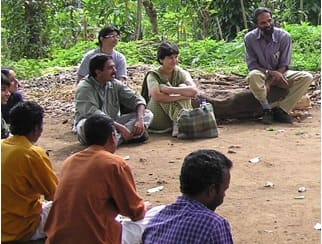
Stakeholders
‘Stakeholders’ possess direct or indirect interests and concerns about a certain asset or situations, but do not necessarily enjoy a morally, legally or socially recognised entitlement to them.[1] They are potential #rightsholders who hold interests that may or may not be considered as sufficiently important to raise a right, and its consequent duties, on someone else. The evaluation concerning whether a stakeholder should or should not be recognized to be/become a rightholder may be moral/social, as well as purely legal. It could be argued, in a certain case, that a stakeholder is also a moral rightholder but the local (or national or international) competent legal authority has refused to give legal recognition to such moral right turning it into a legal right. In this case, it may be politically convenient to refer to the stakeholder as rightsholder in order to advocate for such missing legal recognition.
Indigenous peoples and local communities traditionally living in a territory, sustainably using its natural resources, and exercising collective responsibilities over it, might sometimes be considered by a national government as stakeholders with respect to activities to be undertaken in the area. However, considering them as mere stakeholders denies and neglects the rights recognized to them by international law and, in some cases, also by national law. This is particularly true for indigenous nations and peoples but also for local communities who can demonstrate their role in conserving the territory and its biodiversity through time. Hence, it is important to determine when the concept of ‘stakeholder’ is inappropriately used, in particular when dealing with governing, managing, recognising and supporting ICCAs—territories of life. At other times it might instead be important to state the mere stakeholder role of certain actors, such as a corporation interested in using a certain land for crop production. In summary: the distinction between stakeholders and rightsholders is important and should be treated with great care.
[1] Borrini-Feyerabend and Hill, 2015, page 180.